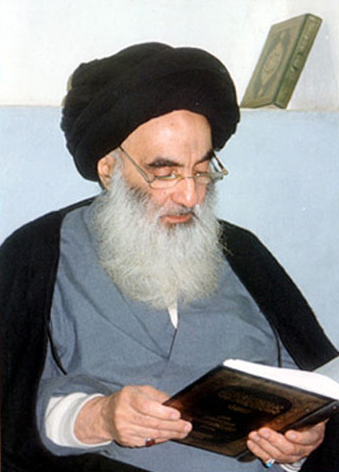General Islamic codes: Hajj; The Pilgrimage to Mecca
 From the rulings of Grand Ayatullah Sayed Ali Hussaini Al-Seestani
From the rulings of Grand Ayatullah Sayed Ali Hussaini Al-Seestani
When a Muslim becomes capable, hajj becomes obligatory upon him. By “capability” we mean the following:
- Availability of enough time to travel to the holy places and stay there for performing the obligatory rites.
- Physical health and strength, observing to travel to the holy places, and staying there for the obligatory rituals.
- The road through which one has to pass for performing the rituals be open and secure, in the sense that it does not place the life or property or honor of the pilgrim in undue danger.
- Financial ability: One should be able to get whatever is necessary for the pilgrim in his journey; e.g., food, drink, clothes, including the means of transportation according to his status by which he can cover the distance for hajj.
- The financial position of the person should be such that by travelling for hajj or by spending from his wealth for it, he would not be putting himself and his dependents in need and poverty.
Hajj Tamattu‘: This is a kind of pilgrimage that is obligatory upon those who live in other countries i.e. far away from Mecca. Hajj Tamattu‘ consists of two rituals: the first is known as ‘umrah, and the second hajj.In ‘umrah, five things are obligatory:
(a) Putting on the pilgrim’s dress (ihrãm) from one of the miqãts. Mawãqít (plural of miqãt) are locations [around the holy territory of Mecca] that sharí‘a has specifically fixed for putting on the ihrãm.
Circumambulating (tawãf) around the Ka‘ba seven times.
The salãt of tawãf.
Sa‘i (i.e., brisk walking) between the hills of Safa and Marwa seven times.
Taqsír: cutting off a little bit of your hair or cutting the nail.
(a) Putting on the pilgrim’s dress (ihrãm) from one of the miqãts. Mawãqít (plural of miqãt) are locations [around the holy territory of Mecca] that sharí‘a has specifically fixed for putting on theihrãm.
Circumambulating (tawãf) around the Ka‘ba seven times.
The salãt of tawãf.
Sa‘i (i.e., brisk walking) between the hills of Safa and Marwa seven times.
Taqsír: cutting off a little bit of your hair or cutting the nail.
The obligatory acts of hajj tamattu‘ are thirteen as follows:
Putting on the ihrãm from Mecca.
Staying in ‘Arafãt on the 9th of Dhu ’l-Hijja.
Staying a part of the night (eve of 10th Dhu ’l-Hijja) until sunrise in Muzdalifa.
Stoning the smaller pillar in Mina on the day of ‘Eid (i.e., 10th of Dhu ’l-Hijja).
Sacrificing an animal in Mina on the day of ‘Eid or during the days of tashríq [i.e., 11th to 13th of Dhu ’l-Hijja].
Shaving one’s head or doing taqsír in Mina. By doing this, the pilgrim is free from the restrictions of ihrãm, except the use of perfume and sexual contact with women. Based on obligatory precaution, the restriction of hunting continues even after shaving or taqsír.
Tawãf of Ziyãrat seven times after returning to Mecca.
Salãt of Tawãf.
Sa‘i between Safa and Marwa seven times. With this, the restriction of using perfume is also lifted.
Tawãf of Nisã’ seven times.
Salãt of Tawãt of Nisã’. With this, sexual contact with women becomes permissible.
Staying during over night in Mina on the eve of 11th and 12th Dhu ’l-hijja. And also, under some circumstance, the eve of 13th Dhu ’l-hijja.
Stoning the three pillars in Mina on the 11th and the 12th of Dhu ’l-hijja. And also, under some circumstance, on the day of 13th Dhu ’l-hijja.


No comments:
Post a Comment